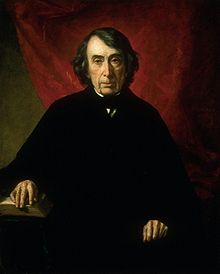
The Supreme Court of the United States, under Chief Justice Roger B. Taney (1836–1864), issued several important decisions on the status of aboriginal title in the United States, building on the opinions of aboriginal title in the Marshall Court.
The Taney Court heard Fellows v. Blacksmith (1857) and New York ex rel. Cutler v. Dibble (1858), the first two aboriginal title cases involving indigenous plaintiffs to reach the Supreme Court since Cherokee Nation v. Georgia (1830), and the first two cases won by indigenous parties in the Supreme Court. In Marsh v. Brooks (1850), in dicta, the Court declared: "That an action of ejectment could be maintained on an Indian right to occupancy and use, is not open to question."
The remaining cases involved no indigenous parties. In United States v. Brooks (1850), the Court refused to inquire into allegations of fraud on the part of Commissioner Jehiel Brooks in negotiating a treaty with the Caddo. Following the Marshall Court's precedent, the Taney Court continued to uphold the validity of state land grants issued before the extinguishment of aboriginal title. Depending on the applicable law, the Taney Court held that aboriginal title could sometimes be asserted as a defense in trespass, ejectment, and writ of right actions, even by those with no claim to title themselves.